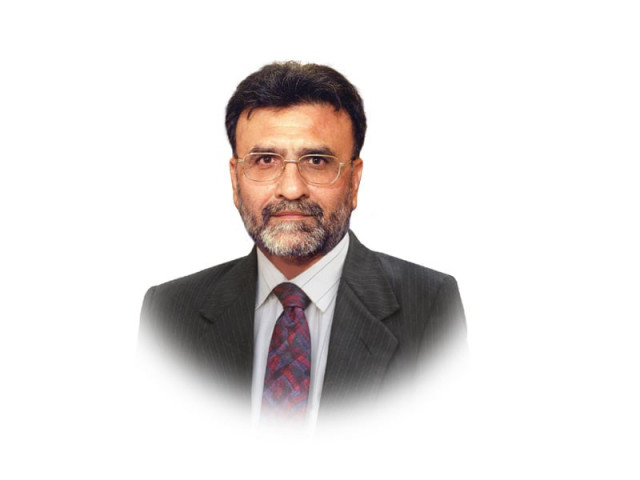Sparks fly as junior electricity minister provokes opposition
Thanks to the absence of opposition, Asif got away with spinning of a rosy picture regarding state of electricity.

Politics seldom confine it to “principles,” though. More often, this profession is rather all about scoring points by rubbing in a grievance-based narrative. With Abid Sher Ali, the state minister of water and power, both the main opposition parties also have some deep personal issues.
This youthful minister from Faisalabad is deliberately rude and provocative, even while dealing with purely technical matters. Electricity stealing seems chronic in this country for so many years, for sure. But talking about it, Abid Sher Ali always want us to believe as if stealing electricity is more prevalent in the K-P and Sindh.
I have it from reliable sources that at least on two occasions, none other than Prime Minister himself firmly told Abid that he must refrain from turning this matter into Punjab versus the rest. Abid is Abid, however, and seldom listens to the sane advice.
The PTI legislators feel doubly annoyed for his diatribes forcefully damage the good governance image of their party. The Sindh government does not feel comfortable with him either and most residents of Karachi seriously suspect that he keeps instigating the government to take measures that may increase the hours of load shedding in their city to an unbearable limit.
With the same fear in mind, cutting across the party divide many members of the Sindh Assembly had recommended “retaliatory cutting or reducing the supply of gas to Punjab,” while delivering hawkish speeches during its Monday sitting.
After resisting Abid with loud hooting and strong remarks, the PPP and the PTI legislators walked out of the house in protest. The opposition walkout created ample space to Khawaja Asif for taking charge of the debate and make a scathing speech over the behavior and legacy of some opposition members.
Thanks to the absence of opposition members, Asif easily got away with spinning of a rosy picture regarding the state of electricity production and supply in Pakistan. Although he sounded convincing in stressing the point that the third Nawaz government did create visible feel good factor by addressing the issue of circular debt in one go within weeks of coming into power.
While acknowledging the feel-good story, only the opposition legislators could have helped us to find out whether the payment of circular debt was the first and the last resort. For how long the government can afford subsidizing the price of electricity in Pakistan is the fundamental question. Also important is the issue of radical revamping of the structure that deals with electricity production, its pricing and stealing. The government does not want to address these questions, though. It rather feels comfortable to imagine that thanks to the gift of 1.5 billion dollars by a friendly country “which does not want to be named,” it now has a comfort-giving cushion that might lead to another payment of again accumulating circular debt.
Notwithstanding the feel-good vibes by the government, I found many ruling party MNAs worriedly trying to “correctly interpret” some remarks that the Chief of Army Staff had made regarding the “dignity” of his institution. Within the house, most ministers behaved as if oblivious to whatever “message” conveyed through these remarks.
In an entirely different context, I also found out that quarters dealing with the internal, external and national security affairs were not so enthusiastic to officially welcome the massive and thus respectable turnout that surfaced during the presidential election of Afghanistan on Sunday. Some political aides of the Prime Minister kept suggesting, forcefully, that the Nawaz government should praise the said turnout and project the same as conveying to the world that the majority of Afghans were now willing to express their choices through the ballot and not the bullets.
Prime Minister took considerable time to issue the welcoming statement by disregarding those who seriously apprehended that by acknowledging a respectable turnout in the Afghan election, the government of Pakistan could annoy those it had engaged in formal dialogue to restore peace.
Published in The Express Tribune, April 9th, 2014.



















COMMENTS
Comments are moderated and generally will be posted if they are on-topic and not abusive.
For more information, please see our Comments FAQ